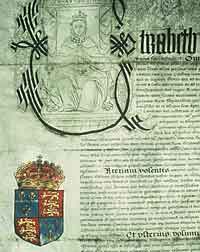Family Wealth & Inheritance
Chapter 3 : Baronies & Peerages by Letters Patent
Baronies and other titles granted by patent were granted by letters patent from the King. The deed of creation usually specifies how it will be inherited after the death of the grantee. This is known as the “remainder”. The most common remainder is to “heirs male of the body of N. lawfully begotten”. Less common is a remainder to ”heirs of the body”, (known as heirs general) which renders the title heritable by women. This includes some of the early English Earldoms, such as those of Salisbury, Warwick and Norfolk. Very occasionally, the remainder may be to “heirs (male)” without specifying “of the body”, making it heritable by siblings or other collateral relatives.

Occasionally, the grant specified the spouse from whom heirs have to descend “N and the heirs male of his body lawfully got upon the body of his wife M”. This is generally the case where a woman’s father held the title, and it is re-granted to her husband, in default of an heir male, or where the King wished to honour the woman.
Titles remaindered to “heirs of the body whatever” are more common in Scotland, making inheritance by women more frequent. Unlike in England, the title would devolve on the eldest daughter, even if there were more than one.
The granting of a new title directly to a woman is exceedingly rare. Margaret, Countess of Norfolk in her own right, was raised to Duchess of Norfolk for life, and famously, Anne Boleyn was created Lady Marquis (not Marchioness) of Pembroke. In a very few cases (more common in Scotland) the limitation will be to “heirs whatever”, so a title might be inherited by a sibling or uncle/aunt of the grantee.
In Scotland, since around the tenth century, there had been provincial minor kings, called Mormaers; three recorded from before the twelfth century, and a further eight thereafter. In early times they had been powerful local rulers, but as the Crown took more power to the centre, they became hard to distinguish from the Earldoms of later years. By the sixteenth century, the title Mormaer had been subsumed into that of Earl.


